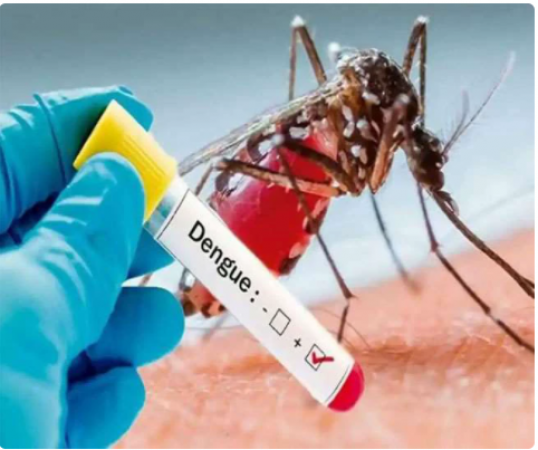
NEW DELHI: Dengue virus has become more dangerous in India, said a team of scientists led by the Indian Institute of Science , stressing the need for developing a vaccine against the strains found in the country.
Scientists demonstrated how the dengue virus has changed significantly over the past few decades across the Indian subcontinent in a multi-institutional study on the disease that was published in the journal PLoS Pathogens.
Dengue cases, a virus spread by mosquitoes, have consistently climbed during the past 50 years, mostly in South-East Asian nations. Despite the fact that several vaccinations have been developed in other nations, there are currently no dengue vaccines that have been authorised for use in India.
Rahul Roy, Associate Professor at the Department of Chemical Engineering (CE), IISc, said, "We were attempting to understand how distinct the Indian variants are, and we found that they are quite different from the original strains used to manufacture the vaccines.
The team looked at all (408) genetic sequences of infected patients' Indian dengue strains that were gathered between 1956 and 2018 by other researchers as well as the team.
The dengue virus is divided into four major serotypes (Dengue 1, 2, 3, and 4). The scientists used computational analysis to determine how much each of these serotypes differed from their global sequence ancestor, from other serotypes, and from each other.
We discovered that the sequences are altering in a really intricate way, Roy remarked. Dengue 1 and Dengue 3 were the most prevalent types in India up to 2012. The researchers discovered that Dengue 4 -- formerly thought to be the least contagious -- is now carving out a place for itself in South India while Dengue 2 has recently grown more prevalent throughout the nation.
The research team was looking into what characteristics determine which strain is prevalent at any particular time.
Suraj Jagtap, a doctorate student at CE, suggested that Antibody Dependent Enhancement (ADE) might be one contributing cause. It is possible for people to contract one serotype first before developing a secondary infection with a different serotype, which causes more severe symptoms, he said.
As per scientists, if the second serotype resembles the first, antibodies produced in the host's blood during the initial infection will bind to the new serotype and do the same with immune cells known as macrophages. Because of this proximity, the newcomer can infect macrophages and worsen the infection. We already knew that ADE increases severity, but Jagtap continued, "We wanted to know if that can also change the evolution of dengue virus."
There are numerous strains of each serotype present in the viral population at any given moment. After an initial infection, the body produces antibodies that offer total defence against all serotypes for two to three years. Cross-serotype protection is lost as antibody levels gradually start to decline.
The researchers suggest that if the body is infected around this time by a similar or not identical. then ADE kicks in, giving a huge advantage to this new strain, causing it to become the dominant strain in the population. A few more years of such an advantage are enjoyed before the antibody levels drop too low to make a difference.
Roy said, "This is the novel aspect of this paper. "Nobody has ever demonstrated such dependence between the dengue virus and human immunity before." According to the researchers, this is most likely the reason why the most recent Dengue 4 strains, which replaced Dengue 1 and 3 strains, were more similar to the latter than their own ancestor Dengue 4 strains.
Since infection rates in this country have historically been high and a significant portion of the population carries antibodies from prior infections, Roy explained that these insights can only be gained from studying the disease in nations like India with genomic surveillance.